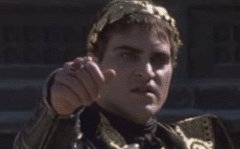Born to Be Blue opens with Chet Baker (Ethan Hawke) locked away in a decrepit Italian jail cell. He’s on the floor and he’s hallucinating, hard. A guard abruptly snaps Baker back to reality by announcing, in stern Italian, that he has a visitor. Some Hollywood big shot appears to have swooped in to save the day. Chet is headed back to the States and it looks like this fancy bigwig saved him just in time.
As he’s being rescued, Baker gets lost in thought. Immediately, his eyes wander and suddenly he’s back at the Birdland (a jazz club in New York) with Miles Davis and Dizzy Gillespie. Chet was a huge star back then, performing with the likes of two already well-established legends. This memory bleeds into reality and suddenly we’re watching as Chet acts out this exact moment opposite an actress who visibly dislikes him.
It’s during this particular scene that Chet relives the time Miles Davis told him to his face that he was unimpressed with his style. It was a harsh wakeup call for Chet, but Davis didn’t stop there. In this memory, Davis tells Chet to come back after he’s lived a little before storming out on him, thoroughly disgusted. Miles Davis shows Chet no mercy as he crushes his soul and ego. Destroyed, Chet loses himself in his favorite distraction, heroin. Born to be Blue is the story of Chet Baker’s comeback.
Ethan Hawke brilliantly brings to life the irresistible nature of jazz legend Chet Baker. Hawke’s interpretation, while delicate and charming, comes with biting honesty. He skillfully manages to make all of Baker’s faults dissolve right before your eyes, even as he’s staring down yet another loaded needle. Hawke maintains a constant, magnetic charisma about Chet by expertly conveying a perpetual yet not overbearing sorrow. The pain in his eyes during the scene in which Baker’s dad dismissively insults Chet’s singing cut me to the bone. Hawke deserves every ounce of the Oscar buzz that’s currently swirling around him for this performance.
Carmen Ejogo plays the parts of both Jane (Chet’s current love interest) and Elaine (his ex-wife). Jane is starring opposite Baker in the biopic that saved him from doing hard time in Italy, and she’s playing his ex-wife in the film. Carmen Ejogo’s portrayal of Jane is a combination of strength, wit, humility and confidence with a deep dose of vulnerability. As Elaine, Ejogo is more like a haunting caricature of an elegantly subtle femme fatale. Elaine the ex wasn’t liked much and that’s clear, but through Ejogo’s performance we can clearly see why Chet found her so appealing. Carmen Ejogo is every woman that’s ever fallen for someone she knows is trouble—big trouble. Both her performances are earnest and heartfelt.
Robert Budreau (Director) reimagines Chet Baker’s comeback as something of a poetic mess. Life with a recovering drug addict never looks easy, but Budreau adds a sort of rose-colored tint to that stress through the exploration of Chet and Jane’s burgeoning romance. Budreau fashions a passionate and visceral version of Chet Baker’s legendary comeback. He keeps a surprisingly brisk pace that lends to the unease stimulated by Baker’s uninhibited and unapologetic love for getting high. Unfortunately however, the storytelling at the start of the film came across somewhat disjointed. There’s a lot of jumping around in time and on top of that, Baker’s a spaced out junky at first, so it’s hard to sort out perspective, tone and intent. A little more fluidity in establishing the context of this iteration of Baker’s comeback would have gone a long way.
Drawbacks aside, by the end of the film, I was completely consumed by Chet's evolution. Nevertheless, further insight into the motives behind Baker's ruthless addiction to heroine and sorrow would have been a welcome deviation from the comeback story. Born to Be Blue is more of a dramatization and less of an actual biopic. Either way, this one made enough of an impact that it took me a second to recover before I could get up and leave the theater. I love when that happens.





